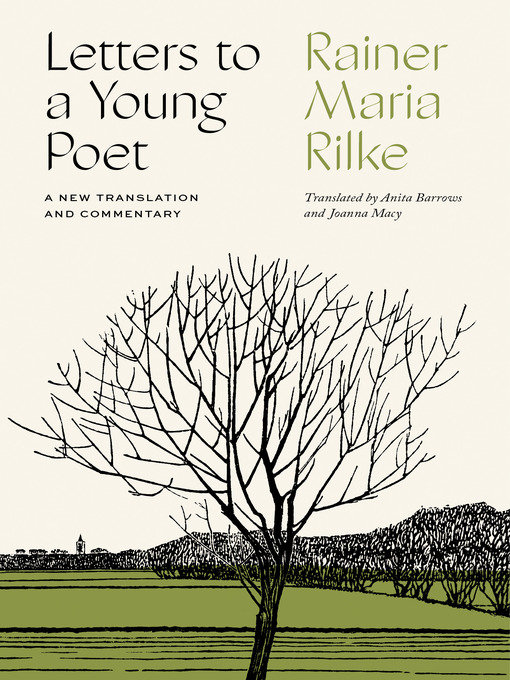German poet Rainer Maria Rilke’s (1875–1926) Letters to a Young Poet has been treasured by readers for nearly a century. Rilke’s personal reflections on the vocation of writing and the experience of living urge an aspiring poet to look inward, while also offering sage wisdom on further issues including gender, solitude, and romantic love. Barrows and Macy’s translation extends this compilation of timeless advice and wisdom to a fresh generation of readers. With a new introduction and commentary, this edition places the letters in the context of today’s world and the unique challenges we face when seeking authenticity.
-
Creators
-
Publisher
-
Release date
June 1, 2021 -
Formats
-
Kindle Book
- ISBN: 9780834843677
-
OverDrive Read
- ISBN: 9780834843677
-
EPUB ebook
- ISBN: 9780834843677
- File size: 1431 KB
-
-
Languages
- English
-
Reviews
-
Publisher's Weekly
August 24, 2020
Rilke’s Letters to a Young Poet (1929) is given an expanded treatment including, for the first time, the letters from Rilke’s correspondent, with intermittently intriguing but underwhelming results. In 2019, Rilke scholar Erich Unglaub discovered the letters that Franz Xaver Kappus, then an Austrian military cadet and aspiring poet, sent to Rilke between 1902 and 1908. Some of them provide enriching context for Letters’ famous passages. For example, following Rilke’s third letter, on the value of solitude and the importance of attaining it, Kappus asks if “we are supposed to endure our solitude in love too” and “share with the other person only the one common element of each having this solitude.” Too often, however, Kappus’s replies are simply fawning, as when he praises Rilke’s words as possessing the “simple grandeur of the Gospels and the richness of fairy-tale kings.” Searls’s translation lacks the poetic tone of earlier editions, and the book’s structure is disappointing, placing all of Kappus’s letters together after Rilke’s, rather than arranging them chronologically. Rilke fanatics will find some value in seeing Kappus’s side of the conversation, but the power of the book still lies in Rilke’s letters.
-
Loading
Why is availability limited?
×Availability can change throughout the month based on the library's budget. You can still place a hold on the title, and your hold will be automatically filled as soon as the title is available again.
The Kindle Book format for this title is not supported on:
×Read-along ebook
×The OverDrive Read format of this ebook has professional narration that plays while you read in your browser. Learn more here.

